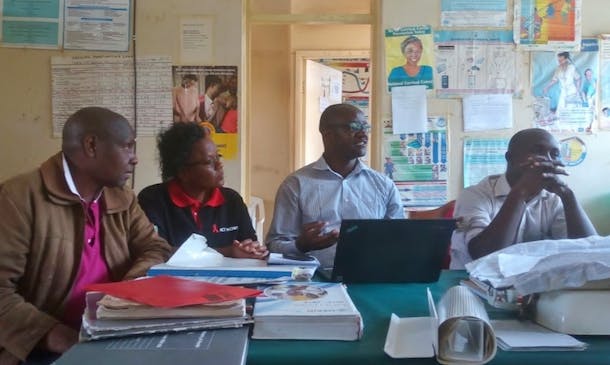
By Taylor Buonocore, President of Born Free Africa
In a world with growing needs and decreasing resources, it is more critical than ever that governments and organizations tackle their most pressing challenges by building strong teams and managing them effectively to achieve results.
Business executives agree that behind every successful initiative is a capable and committed group of people whose efforts toward a common goal are well managed toward results. But in the development sector, organizations often take the path of least resistance when it comes to hiring people and managing teams, due to competing priorities and a lack of management tools, training, and experience. While this approach to hiring may sometimes result in a “good” employee, more commonly, the employee’s performance is perceived as lackluster, or “not exactly what we wanted.” Similarly, this approach to management often leads to teams who “get the job done,” but not as efficiently or effectively as possible.
In the case of the prevention of mother-to-child transmission of HIV, a focus on hiring and instilling management practices is helping to move the needle toward elimination in some of the most challenging places. An HIV-free generation is the first step in the end of HIV, and we are closer than ever to achieving this goal. Just 15 years ago, more than 500,000 children were newly infected with HIV every year. Mother-to-child transmission of HIV, which is preventable, was responsible for 90% of the new infections. But since 2011, rates of mother-to-child transmission have dropped by 60%, and they continue to decline. In sub-Saharan African countries with the highest burden, the pace of change has been impressive. Between 2012-2015, Nigeria doubled the number of HIV+ pregnant women receiving antiretroviral therapy, and between 2014–2015, Kenya decreased the number of infants infected with HIV by 66%.
Behind these statistics is a coordinated global effort driven by clear goals, a results-oriented plan, and accountability. In Nigeria and Kenya specifically, government leadership at the national and subnational levels and the collaboration of many organizations, including the private sector, have contributed to these achievements.
Born Free Africa is a private philanthropic initiative that contributes to the elimination mother-to-child transmission of HIV through advocacy, policy, and implementation of embedded talent initiatives. Born Free Africa applies private sector approaches to this public health challenge by partnering with national governments to hire teams of local management advisors who are embedded in government programs to intensify the focus on elimination of mother-to-child transmission at the sub-national and facility levels. These partnerships tested the hypothesis that additional human resources with a specific skill set, embedded within government and focused on program management with clear goals could accelerate and sustain progress toward population health goals.
Between 2012–2017, the Nigerian and Kenyan Ministries of Health embedded management who applied a results-oriented, collaborative, streamlining approach that was grounded in evidence and synthesis of relevant data. The embedded talent focused on key geographies identified by the government strategy and worked closely with subnational government teams to improve the understanding and use of data, unblock obstacles, and improve coordination.
In Kenya, these transformative partnerships also put in place a streamlined recruiting process, which identified high-quality candidates, yielded 100% acceptance rate by candidates offered the role, and developed improved individual and team performance over time. Best practice management practices were also utilized to ensure that the embedded talent was challenged, supported, and continually learning and improving.
The partnerships between Born Free Africa and the Governments of Nigeria and Kenya reinforce the idea that talent is a key driver of solutions and impact. We know that it is more important than ever to hire and support strong national talent to tackle our most pressing global problems, and Born Free Africa’s experience suggests that there is a desire within the public health community to improve approaches to talent. Born Free Africa is currently developing a best practice resource to share sample methodologies and resources for building a high-quality team and effectively managing for results, based on these partnerships in Nigeria and Kenya.
Human capital is typically the greatest investment that any organization makes, so it’s important to take every possible step to ensure the value of that investment.
This post is part of the “SDG Solutions” series hosted by the United Nations Foundation, Global Daily, and +SocialGood to raise awareness of ways the international community can advance, and is advancing, progress on the Sustainable Development Goals. As the international community prepares to gather at the UN for the High-Level Political Forum on Sustainable Development from July 10-19, this series will share ideas and examples of action. Previous posts in the series can be found here.



 View All Blog Posts
View All Blog Posts